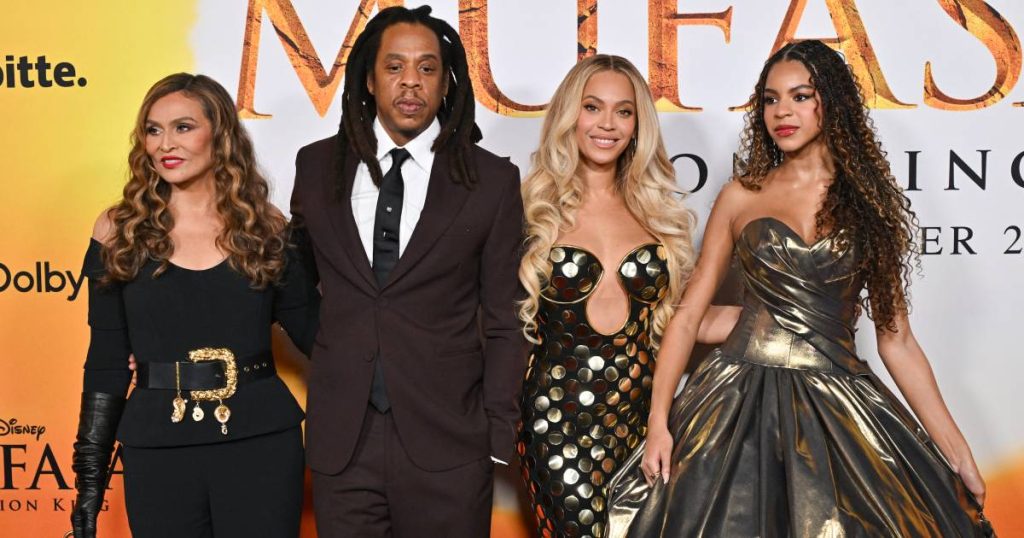Shawn "Jay-Z" Carter, the renowned rapper and music mogul, recently found himself at the center of a storm of controversy. A civil lawsuit filed in October 2024, and amended in December 2024, accused him and fellow rapper Sean "Diddy" Combs of raping a 13-year-old girl in 2000. The alleged incident purportedly took place at an afterparty following the MTV Video Music Awards. This serious accusation brought Jay-Z’s personal life under intense public scrutiny, particularly given his high-profile marriage to pop superstar Beyoncé and their family life.
The lawsuit, filed by Texas-based attorney Tony Buzbee, identified the accuser only as "Jane Doe" and detailed her claims of the alleged assault. Buzbee, known for representing numerous alleged victims against high-profile individuals, including over 120 alleged victims of Diddy, presented the case against Jay-Z and Combs. Combs, already incarcerated since September on unrelated charges and denied bail four times, faced another serious allegation, further complicating his legal troubles. His trial in that case was scheduled for May 2025. The timing of this new accusation against both rappers, particularly with Combs’ ongoing legal battles and impending trial, added another layer of complexity to the unfolding narrative.
Jay-Z, known for his carefully cultivated public image and tight-lipped nature regarding personal matters, responded swiftly and forcefully to the accusations. In a statement released to the media on December 8, 2024, just a day before a public appearance with his family, he vehemently denied the allegations and expressed anguish over the potential impact on his family, particularly his children. He characterized the lawsuit as a malicious attempt to destroy families and highlighted the emotional toll such accusations can have on young children who are exposed to the public discourse surrounding the case. His statement emphasized the pain of having to explain such allegations to his children, one of whom was approaching an age where peer pressure and social media could amplify the impact of the accusations.
Beyond the immediate impact on his family, Jay-Z’s statement also addressed the broader implications of the lawsuit. He expressed deep concern over the "loss of innocence" that children experience when confronted with such serious allegations, emphasizing the unfair burden placed upon them to comprehend the motivations behind such claims. This concern reflects a wider societal anxiety about the protection of children and the potential damage caused by exposure to adult themes and legal battles. The statement served not only as a personal denial but also as a commentary on the responsibility of adults to shield children from the harsher realities of the world.
The rapper further targeted Buzbee directly, accusing him of exploiting individuals for personal gain. He dismissed the claims as ludicrous and suggested that only conspiracy theorists would believe them. This direct attack on Buzbee’s credibility aimed to undermine the foundation of the lawsuit and portrayed the attorney as motivated by self-interest rather than the pursuit of justice. By questioning Buzbee’s motives, Jay-Z attempted to shift the narrative from the accusations themselves to the credibility of the accuser’s legal representation. This strategy is common in high-profile legal battles, where discrediting the opposing counsel can be as important as addressing the specific allegations.
Amidst this legal turmoil, Jay-Z made a deliberate public appearance with his family at the premiere of Disney’s Mufasa on December 9, 2024, in Hollywood. This appearance, alongside Beyoncé, their daughter Blue Ivy Carter, and Beyoncé’s mother, Tina Knowles, projected an image of family unity and resilience in the face of adversity. The family’s coordinated appearance on the red carpet, posing arm-in-arm, sent a powerful message of solidarity and defiance against the swirling accusations. It was a carefully orchestrated public display that emphasized Jay-Z’s commitment to his family and his determination to maintain a sense of normalcy despite the ongoing legal battle. The event itself, a premiere for a family-friendly Disney film, further emphasized this focus on family and offered a stark contrast to the serious allegations leveled against him. The presence of Blue Ivy, who had a voice acting role in the film, highlighted the family’s involvement in the project and further underscored the message of unity and support. This public appearance served as a powerful visual counterpoint to the lawsuit, projecting an image of stability and strength in the face of adversity.

